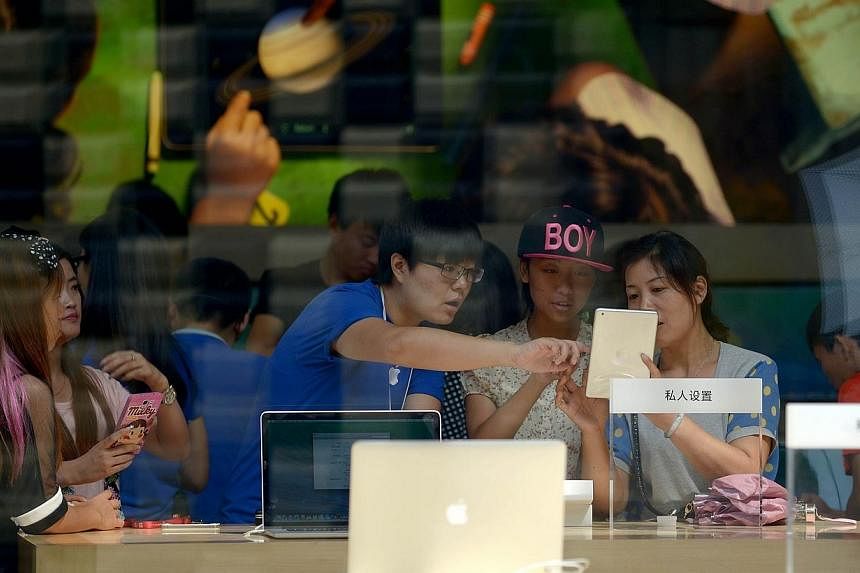BEIJING (REUTERS) - Apple products such as laptops and tablets are not banned from Chinese government procurement lists, according to the country's chief procurement centre, refuting a report claiming Apple was blacklisted on national security concerns.
According to a Bloomberg News report published on Wednesday, 10 Apple products, including MacBook laptops and iPad tablets, were taken off a government list of approved hardware due to security concerns.
The Central Government Procurement Centre, as well as the finance ministry and Apple, said the company never applied to be on the list in the first place.
The list that created the confusion this week involves energy-saving products, and is just one of a multitude of government procurement lists in China. Apple has never been on that list, the company said in emailed comments on Friday, declining to give more details.
"Even though Apple has the certification for energy-saving products... it has never provided the necessary verification material and agreements according to the regulations," said a Finance Ministry fax sent to Reuters on Thursday evening, a statement closely mirrored by the Central Government Procurement Centre in their own announcement on Friday.
The government can still purchase Apple products, even if they are not on the energy-saving list, according to the Central Government Procurement Centre website.
This week, many of the products mentioned were available for purchase on the website, except for a brief period late Thursday when sales were temporarily halted for a monthly price adjustment.
Multiple suppliers, who declined to be identified because they did not want to damage their business with the government, told Reuters that the price adjustments were routine. They said they did not believe the stoppages were due to national security concerns based on their conversations with the central procurement agency.
"They didn't say once that it had anything to do with national security," said an employee at a Beijing-based government supplier.
The government website resumed selling Apple products including laptops as of Friday afternoon. The most popular model was bought 23 times between Thursday and Friday.
"Every month we have one price adjustment to make sure the prices are aligned with market prices," said a person familiar with the procurement process, who attributed the confusion to a misunderstanding. "We'll stop purchases and then restart after they're aligned."
The uncertainty and speculation surrounding Apple's procurement status reflects the heightened anxiety among foreign technology firms in China amid what they perceive as a multi-pronged, official campaign to curb their business.
Chinese regulators recently launched an anti-monopoly probe into Microsoft Corp. That came after China said in May it would ban Microsoft's Windows 8 operating system citing security concerns.
The central procurement agency also recently delisted foreign anti-virus software vendors Symantec Corp and Kaspersky Lab due to security concerns, according to the state-run Xinhua news agency. Mutual suspicions between China and the United States over hacking have escalated over the past year following revelations by Edward Snowden that US intelligence planted "backdoor"surveillance tools on US-made hardware.
The US Justice Department, meanwhile, indicted five Chinese military officers in May on counts of extensive industrial espionage.

